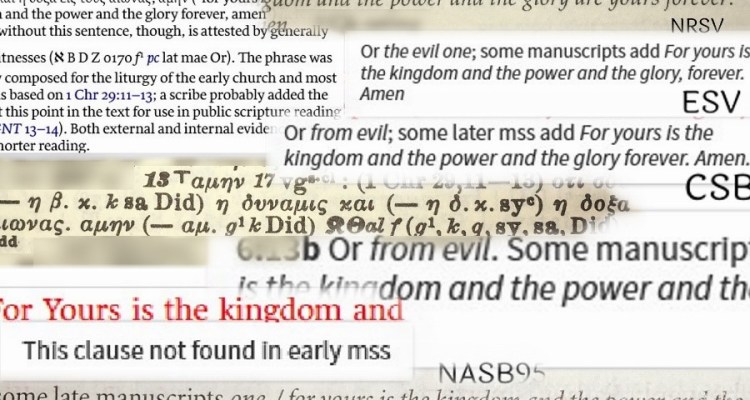Last week I wrote about the estimated 200,000-500,000 textual variants in the Greek New Testament manuscripts. That's a lot of variants, but with over 2,000,000 pages of New Testament manuscripts available for scholars to study, that averages out to less than 1 unique textual variant for every 4 pages of text. Now consider, the majority of textual variants in the New Testament manuscripts are spelling differences that don't affect the meaning of the...
Category: Textual Variant
How Many Textual Variants Exist in the New Testament Manuscripts?
In my article What are Textual Variants? I described textual variants as being any word or phrase in a manuscript that is different from the standard text. If a word is misspelled, it's a variant. If a scribe accidentally left out a verse, it's a variant. Any change, no matter how small, is considered a variant. I've read about two ways to count textual variants, and they conflict.
Counting Method 1
The first method for counting...
What are Textual Variants?
Last week I started a new series with the article Why are there Variations in Different Translations of the New Testament?. Textual Variants are places where ancient manuscripts attest to more than one reading of a passage. There are about 138,000 words in the Greek New Testament, and it's unreasonable to think anyone could copy it without making a single mistake. Most of the variants are simple spelling errors or other accidental...
Why are there Variations in Different Translations of the New Testament?

Have you ever looked at the footnotes in a Bible and seen an alternate wording? Perhaps a note that starts with "some manuscripts add....", "Other ancient authorities add" or even "This clause not found in early mss"? For example, the last verse of the Lord's Prayer can be written several ways:
- And lead us not into temptation, but deliver us from evil. (Matthew 6:13 ESV)
- And lead us not into temptation, but deliver us from the evil...
